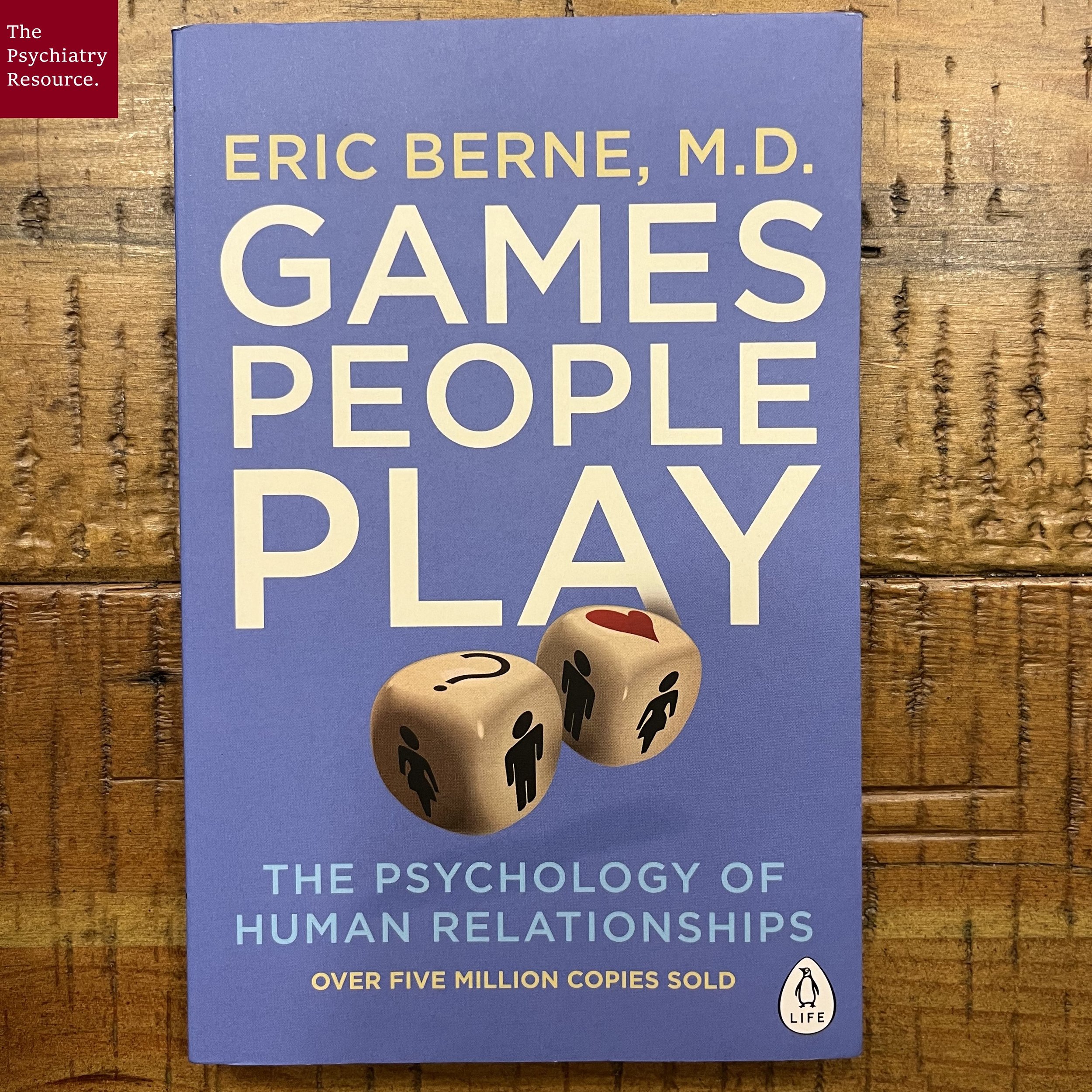Book Review – Games People Play
Image: Games People Play by Len Lantz (CC BY-NC-ND)
Synopsis: Len's Star Rating: 3 out of 10. A book on transactional analysis that is most useful as a historical reference.
BY LEN LANTZ, MD / 10.1.2022; No. 96
Disclaimer: Yes, I am a physician, but I’m not your doctor and this article does not create a doctor-patient relationship. This article is for educational purposes and should not be seen as medical advice. You should consult with your physician before you rely on this information. This post also contains affiliate links. Please click this LINK for the full disclaimer.
Star Rating – 3 out of 10
Rating guide: 1 = horrible, 5 = average and 10 = wow
Author
Eric Berne
About the author
Eric Berne, MD, (1910-1970) was a psychiatrist, author of over a dozen books, creator of the transactional analysis therapeutic approach, and founder of the International Transactional Analysis Association.
General description
Games People Play has been listed as the best-selling, non-fiction book of the 1960s, spending over 100 weeks on the New York Times Best Seller List. It has sold over 5 million copies and likely was helped to fame by a wildly enthusiastic book review by noted author Kurt Vonnegut Jr. in a 1965 issue of Life Magazine. In his book, Dr. Berne briefly covers some of the basic tenets of the transactional analysis approach, defines terms used in the approach, and lists and describes the different “games.” The author grouped his content into three sections:
Analysis of Games
A Thesaurus of Games
Beyond Games
Unique and most important aspects
Games People Play is most helpful from a historical perspective. While it became popular with general readers in the 1960s, it mostly comes across as jargon filled and difficult to read for today’s readers nearly 60 years after its original publication. I had already read and reviewed the much more approachable book on transactional analysis titled I’m OK-You’re OK, which also became a bestseller (selling 15 million copies), so I found this earlier book to be especially lacking. The name of each game seems interesting (ex., “Now I’ve Got You, You Son of a Bitch”), but the author seems to analyze each game rather than fully explain the game in a story or dialogue. Without frequent, descriptive narratives and dialogue, the book ends up feeling like a tease. Readers also are likely to be put off by the author’s gender stereotyping and the disturbing section called “Rapo” in which there is a vignette about an “illegitimate cry of rape.”
Best quotes
“A game is an ongoing series of complementary ulterior transactions progressing to a well-defined, predictable outcome. Descriptively it is a recurring set of transactions, often repetitious, superficially plausible, with a concealed motivation; or, more colloquially, a series of moves with a snare, or ‘gimmick’. Games are clearly differentiated from procedures, rituals, and pastimes by two chief characteristics: (1) their ulterior motives and (2) the payoff.”
“People who play destructive games will come to the therapist far more frequently than people who play constructive ones.”
Who would enjoy this book?
Readers who are interested in learning about historical perspectives on transactional analysis are likely to enjoy Games People Play.
Who would not enjoy this book?
Readers with a trauma history or who are looking for more descriptive examples of the games of transactional analysis are unlikely to enjoy Games People Play. I would direct readers who are interested in a more approachable text on transactional analysis to the book I’m OK-You’re OK by Thomas Harris (See Len’s Book Review).
Conclusion
Games People Play is a book on transactional analysis that is most useful as a historical reference.

